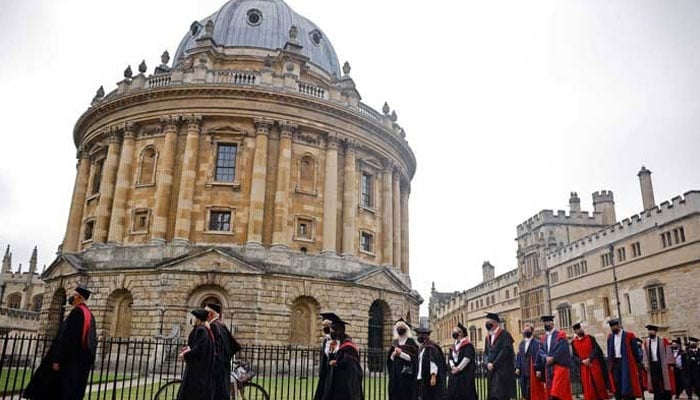
The British Labor Party government announced today, Monday, that university education fees will be raised in England for the first time in eight years, while higher education institutions face a worsening financial deficit, according to Agence France -Presse.
The increase is 3.1 percent at a time when university leaders blame the campaign against immigration to restrict the numbers of international students, which already affected the UK exit from the European Union.
Education Minister Bridge Philipson said that the maximum academic fees for local university students enrolled in English universities will increase 285 pounds in August 2025 to 9,535 pounds ($ 12,350).
The maximum has been determined at 9250 pounds sterling since 2017.
The amount available in maintenance loans, which helps students in general living costs, will also increase by 3.1 percent.
Philipson said that the new government, which was elected last July, is making “difficult decisions to restore stability to higher education.”
The Labor Party blamed the Conservative Conservative Party for leaving a terrible inheritance in various sectors, including the economy, health services and prisons.
Last week, the left of the left party announced tax increases to collect 40 billion pounds in its first budget in almost 15 years.
University education fees were imposed for the first time in Britain by the government of the Labor Party of Prime Minister Tony Blair in the late 1990s.
In 2012, conservatives doubled the maximum that universities could impose three times to 9,000 pounds. Then he kept the maximum at 9250 pounds sterling for seven years, despite the high inflation.
The new Prime Minister of the Labor Party, Kiir Starmer, pledged to cancel the tuitions when he was nominated to lead the party in 2020.
The departments delegated in Scotland, Wales and Northern Ireland have policy -making powers on education and determine tuition fees.
Fears of deficiency
UK universities (UUK), which represents 141 British higher education institutions, welcomed the increase as “the right thing to do.”
“The prosperous universities are necessary for the prosperity of the United Kingdom,” Vivian Stern, CEO of the United Kingdom, said in a statement.
The freezing of drawings for nearly a decade described as “absolutely not sustainable for both students and universities.”
UK University has warned that all of its members “feel the crisis” caused by the restrictions imposed on international students’ visas.
They usually pay more academic fees than their local counterparts, and they have become a profitable source of income for many institutions.
But former conservative Prime Minister Rishi Sonak imposed restrictions on student visas abroad, and prevented many from bringing their families, as part of a campaign on standard immigration levels.
In the first four months of 2024, there were fewer requests from abroad by 30 thousand compared to the same period in 2023, according to official statistics.
Universities have warned for months of influencing their financial resources, with fears that the shortage may require them to cancel or force some of them to close.
Sally Mabston, President of the United Kingdom University, said at the group’s conference in September that the current deficit in the sector is 1.7 billion pounds for teaching and 5 billion pounds for research.
The National Union of Students welcomed the increase of alimony loans, which he defended for years.
But its vice president for higher education, Alex Stanley, demanded an “urgent review” to finance higher education, saying that the sector is “in a crisis.”
He said: “It is not possible to continue financing universities by constantly increasing debt burden for students.”
